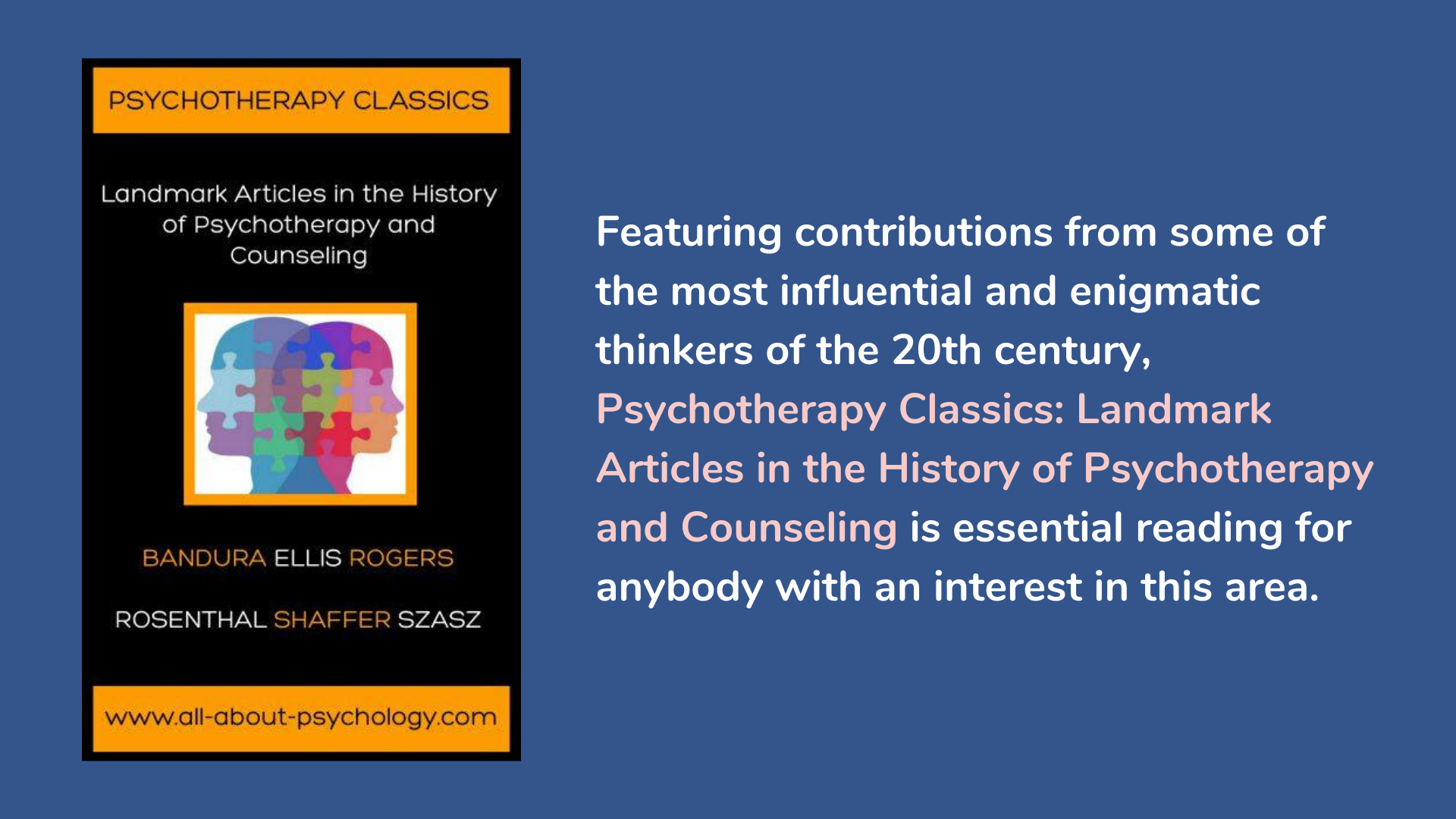Counseling Psychology Information and Resources
"Counseling psychology is a general practice and health service provider specialty in professional psychology. It focuses on how people function both personally and in their relationships at all ages. Counseling psychology addresses the emotional, social, work, school and physical health concerns people may have at different stages in their lives, focusing on typical life stresses and more severe issues with which people may struggle as individuals and as a part of families, groups and organizations. Counseling psychologists help people with physical, emotional and mental health issues improve their sense of well-being, alleviate feelings of distress and resolve crises. They also provide assessment, diagnosis, and treatment of more severe psychological symptoms."
American Psychological Association
Perspectives on Counseling Psychology
Counseling Psychology vs Clinical Psychology
When it comes to professional practice, there is a significant degree of overlap between counseling and clinical psychology. For example, both counseling and clinical psychologists are able to offer a range of psychotherapeutic interventions and services, for example, compassionate, trauma-informed counseling online.
To appreciate the difference between counseling and clinical psychology, one must look to the historical development of the two disciplines. Patricia R. Roger and Gerald Stone from the Society of Counseling Psychology, (Division 17 of the American Psychological Association) have written an excellent article on this topic which you can read HERE.
Counseling Psychology Career Advice & Information
Counseling Psychology is a recognized specialty within professional psychology, the practice of which requires a specific knowledge base attained through coordinated education and training. As such, anybody interested in pursuing a career as a counseling psychologist should make their national psychology association or representative body a first port of call for information, advice and guidance.
With this in mind, I've provided information links for anybody interested in becoming a counseling psychologist, or anybody wanting to find out more about what counseling psychologists do.
This information will relate predominately to the practice of counseling psychology in the USA & UK (Spelled with an extra "L" i.e. Conselling Psychology) however, I hope to include related information from other countries in due course.
USA
The Society of Counseling-Psychology Division 17: The American Psychological Association
Founded in 1946 The Society of Counseling-Psychology promotes personal, educational, vocational, and group adjustment in a variety of settings. Via the website you can access Society of Counseling-Psychology newsletters and other useful publications. There is also a comprehensive student section that provides the answers to a range of questions relating to the study and practice of counseling-psychology.
CLICK HERE To Visit The Society of Counseling-Psychology Website.
UK
The British Psychological Society
CLICK HERE for information on:
The Role of The Counselling Psychologist
How Much Counselling Psychologists Get Paid
Becoming A Counselling Psychologist
Obtaining Relevant Work Experience
Australia
The Association of Counselling Psychology
Among the information provided here you will discover what a counselling psychologist is, how to become a counselling psychologist and what the The Association of Counselling Psychology does..
CLICK HERE To Visit The Association of Counselling-Psychology Website.
The Australian Psychological Society College of Counselling Psychologists
The role of the APS College of Counselling-Psychologists is to enhance the professionalism and competency of counselling psychologists and to promote the work of counselling psychologists to their professional colleagues and within the community. The following link provides information to members about the current activities of the College of Counselling Psychologists and to assist psychologists who are considering joining the College. Information is also available relating to the type of work that counselling psychologists do.
CLICK HERE To Visit The Australian Psychological Society College of Counselling Psychologists Webpage.
(Many thanks to Ben Mullings for letting me know about these very useful links).
Carl Rogers Conducting Client Centered Therapy
The following five-part video playlist was part of a groundbreaking production from 1965 Entitled "Three Approaches to Psychotherapy" featuring Carl Rogers, who was profoundly influential in the humanistic movement towards person centered theory and non-directive psychotherapy/counseling.
Essential Reading
This wonderful collection of articles, originally published between 1946 and 1961 has been put together as part of an initiative to make historically important psychology publications widely available; the sales of which, help support www.all-about-psychology.com - a website which has been providing free and comprehensive information and resources for students and educators since 2008.
Significant Aspects of Client-Centered Therapy By Carl Rogers
In this landmark publication Carl Rogers outlines the origins of client-centered therapy, the process of client-centered therapy, the discovery and capacity of the client and the client-centered nature of the therapeutic relationship.
The Problem of Psychotherapy by Laurance Shaffer
Originally presented as the address of the President of the Division of Clinical and Abnormal Psychology, American Psychological Association; this landmark paper draws attention to issues relating to the nature of the therapeutic process within psychotherapy which are just as relevant today: How can we understand what takes place in the therapeutic interview? Why does it readjust the distressed person? Under what conditions is psychotherapy applicable? What techniques, applied in appropriately selected circumstances will produce predictable and effective results? Shaffer's central argument is that the psychologist's major problem with respect to therapy is not that of the professional conditions of practice, but is the problem of understanding what therapy is and does.
Psychotherapy And The Placebo Effect by David Rosenthal & Jerome D. Frank
Describes the placebo effect, discusses some of its implications for the evaluation of psychotherapy, and makes recommendations concerning research design in psychotherapy based on these considerations.
Rational Psychotherapy and Individual Psychology by Albert Ellis
One of the first published accounts of rational psychotherapy; a theory of personality and a system of therapeutic technique that would eventually develop into what is now known as rational emotive behavior therapy. In the course of this landmark paper Ellis introduces and expands upon his hypothesis that thinking represents the most important way in which human emotion is caused and controlled. He then goes on to outline the main points of agreement and disagreement between rational therapy and the individual Psychology of Alfred Adler.
Recollections of A Psychoanalytic Psychotherapy: The Case of "Prisoner K" by Thomas-Szasz
Fascinating account of "psychoanalytic psychotherapy" conducted by Thomas Szasz; who was soon to elevated into a position of international renown and controversy following the publication of his classic text "The Myth of Mental Illness."
Psychotherapy As A Learning Process by Albert Bandura
In this classic paper eminent psychologist Albert Bandura explores systematic attempts to apply principles of learning to the area of psychotherapy. Bandura begins this exploration by asking whether human behavior can be modified through psychological means and if so, what are the learning mechanisms that mediate behavior change? He then sets about discussing some of these learning mechanisms in turn i.e., counterconditioning, extinction, discrimination learning, methods of reward, punishment and social imitation.
Recent Articles
-
Forer Effect Explained: Why “That Sounds Like Me” Feels True
Dec 24, 25 07:33 AM
The Forer effect explains why vague personality descriptions feel personal. Learn how validation, authority, and expectation shape misplaced certainty. -
Psychology of Perception: Why Believing Is Seeing
Dec 22, 25 10:38 AM
How perception is shaped by attention, expectation, and belief, and why illusions reveal that seeing is an active, interpretive psychological process. -
Neuropsychology
Dec 18, 25 04:16 AM
Neuropsychology information and resources. Learn all about the fascinating branch of psychology which explores the relationships between the brain and behavior.
Go To The Types of Psychology Page
Go From Counseling Psychology Back To The Home Page




